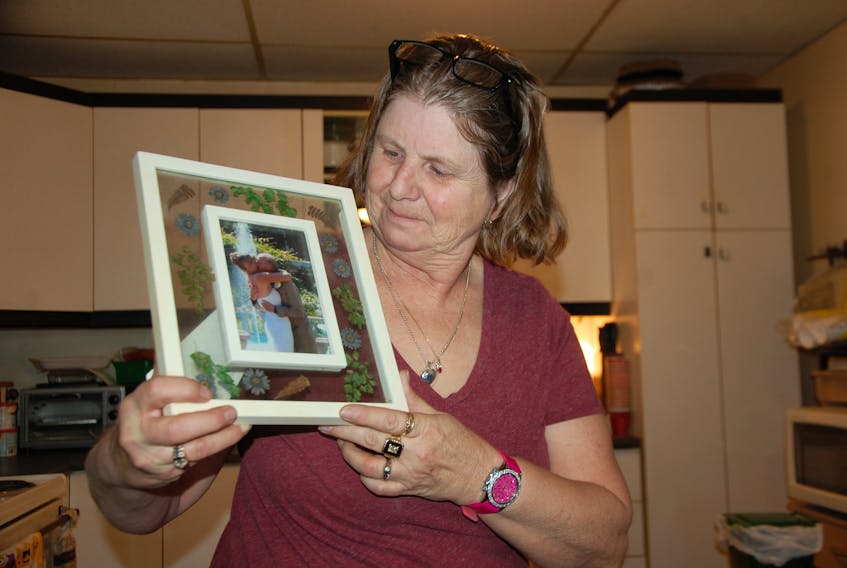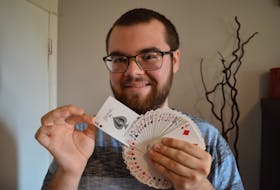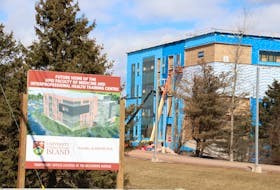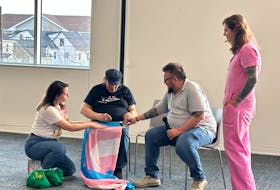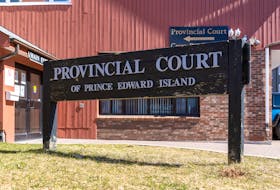They passed in peace.
Some wanted special music played, others a poem read.
In at least one case, only a spouse attended the final farewell. At other times, a large gathering of loved ones joined together to witness a life ending.
The parting is very personal, the arrangements quite individual, said Dr. Megan Miller.
“There’s certainly no rush…it’s always on their terms,’’ she says of the Islanders who have chosen when and where to die.
“What I have seen are very, very peaceful deaths.’’
Miller, a palliative care physician who works at the Cancer Treatment Centre in Charlottetown, has provided medical assistance in dying (also known by the acronym MAiD) to a handful of P.E.I. residents since the service became legal in Canada and P.E.I. on June 17, 2016.
Miller sees MAiD as an extension of her palliative care work, which is largely about relieving suffering.
“I believe in Canadians’ rights to make this choice if they meet the criteria for it,’’ she said.
“It’s really about respecting each individual person and what their choices are.’’
Miller is seeing patients choosing medical assistance in death due more to a low quality of life than because of pain.
Each person, she is quick to note, sets a different bar on what is an acceptable existence.
Shortly before a doctor helped end his life on Friday, Feb. 8, Charlottetown resident Neil Harpham told The Guardian that he was eager to die due to rapidly deteriorating health caused by three different cancers.
“He had no quality of life,’’ Debbie Harpham said of Neil, her husband of 14 years.
“He couldn’t do anything.’’
Debbie was by her husband’s side to watch him die.
Neil told Debbie he loved her. Debbie told Neil she loved him.
Neil’s desire to end his suffering was clear, said Debbie. Neil never wavered.
“He said ‘let’s get ‘er done,’ ’’ she said.
“He went very peacefully.’’
Neil is one of at least 15 people who have had medical assistance in dying on P.E.I. Each of those deaths were induced by an injection of sedatives and medication that causes the heart and lungs to stop working. A patient also has the option of taking a prescription to allow them to end their life through self-medication.
Miller said the rate of MAiD is increasing across the country, something she attributes, in part, to a reduced stigma.
Miller makes clear her role is not to encourage or promote medical assistance in dying. She simply discusses MAiD as an available option, although not all of the patients she talked to about the service were aware it was available here.
A person can request medical assistance in dying by speaking to his or her family physician or nurse practitioner who is most responsible for his or her care, notes Health P.E.I. For those who do not have a family doctor or nurse practitioner or would prefer to speak with someone else, Health P.E.I. encourages placing a call to 811 to get help being referred to another health-care provider.
“Your physician or nurse practitioner will discuss any concerns about your health-care situation with you and, together with you and other colleagues, ensure you have considered all of the services or treatment that are available,’’ Health P.E.I. states on its website.
“These may include comfort care, pain control, hospice care, palliative care or other options.’’
A person approved for medical assistance in dying will be asked at various times if he or she wants to proceed with the service. A person can change their mind about going ahead with MAiD at any point, even moments before the procedure is set to take place.
“It’s absolutely never too late to withdraw a request,’’ said Miller, adding that delivering patient-centred care is “truly rewarding”.
Debbie Harpham dearly misses her late husband but finds comfort in knowing Neil’s desire to die has been granted.
“He looked content and he went his way,’’ she said.
She realizes some people are against the idea of medically assisted deaths, but she is not one of them.
“Everybody has their own opinion,’’ she said.
“I would recommend it to anybody who is terminally ill and that is suffering. It’s a peaceful way to go.’’

